Meet Alexi and Rob, a couple who has been thinking about energy conservation for years—since the 1970s, as Alexi points out. “I think we always thought about it,” Rob adds. However, their journey to significantly reduce their energy usage took a leap forward when they decided to get serious about tracking and optimizing their energy consumption.
Energy Monitoring
The couple’s initial steps into energy monitoring started before smart meters were even installed. They shared how they tried to figure out where all their power was used by observing the timing. But it was very tricky, and they could never really figure everything out. The installation of smart meters made the monitoring process a lot easier. “When we got the smart meters, you could kind of instantaneously see where everything is on the PSEG website,” Rob says. However, despite the insights from the smart meters, they felt something was missing. “We still felt like there was a gap, and you couldn’t really understand it,” he explained.
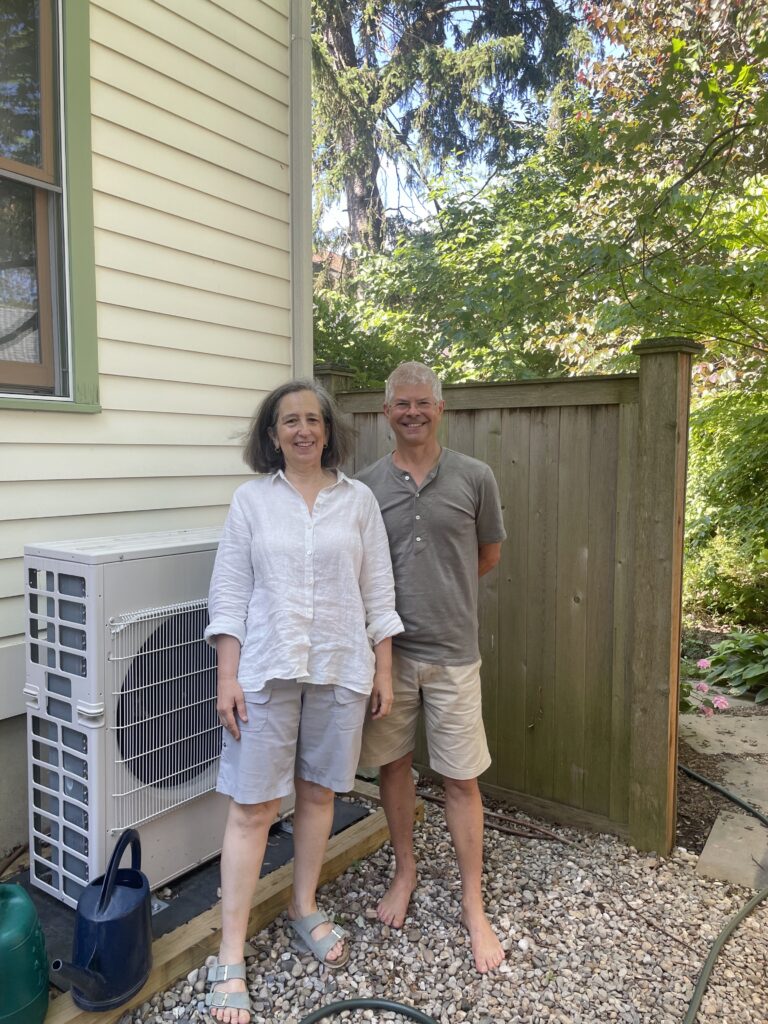
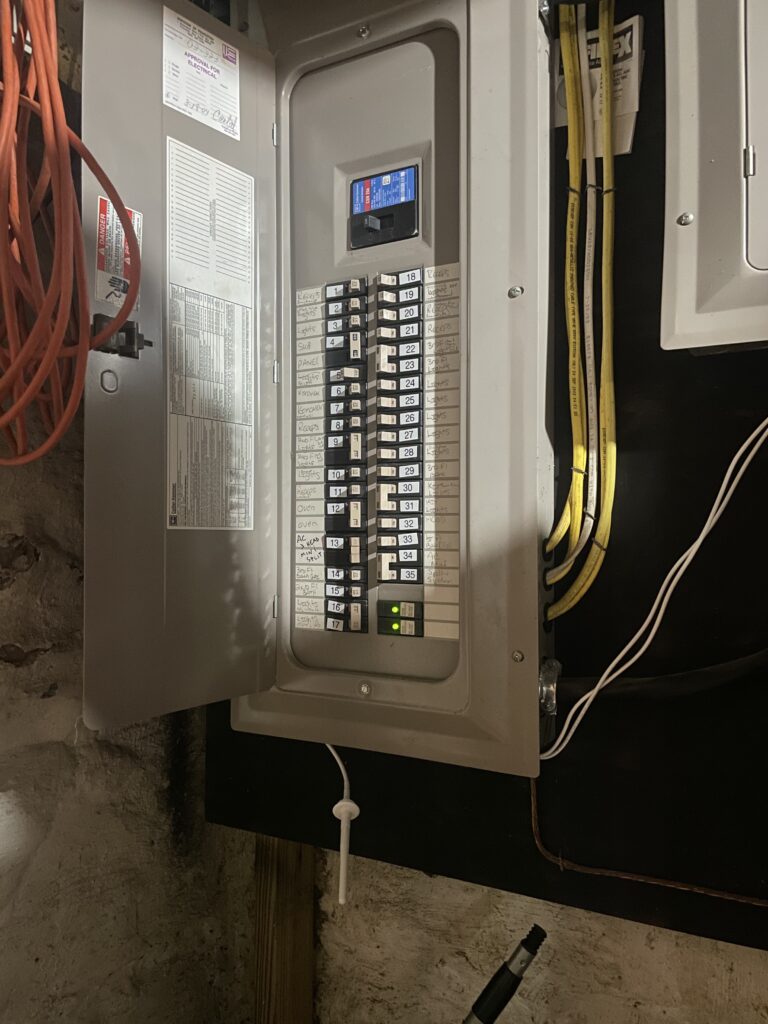
Smart Plugs and Electrical Panel
Rob and Alexi began using smart plugs to measure individual appliances’ energy use. “Some things are easy to do because you can put the smart plugs between the appliance and the wall,” Alexi said. But the larger appliances, such as their natural gas boiler, were more difficult.
Other smart technology played a crucial role in their conservation efforts. Alexi and Rob installed Emporia, a system that allows users to monitor energy consumption circuit by circuit. “With Emporia, you can see what everything is doing in real time,” Rob explains. By tracking every circuit, they could fine-tune their energy usage. For example, Alexi notes how they optimized the use of their air filters, “With the smart plug, you know it takes about 0.3 kilowatt-hours a day, so it makes a big difference if you have eight on or just two.”
They also found, “The boiler was taking a lot of electricity,” Alexi adds, a discovery that marked a turning point for the couple. They found that the natural gas boiler consumed more than one kilowatt-hour per day of electricity.
A Game-Changer: The Heat Pump Water Heater
To tackle the energy consumption of their boiler, Rob had an innovative idea, “Let’s get a heat pump hot water heater.” By separating their hot water system from the boiler, the couple was able to turn the boiler off for extended periods. “We’re hoping we can keep the boiler off for six months,” Alexi adds. The financial and environmental impact was substantial, with Alexi explaining that “the electricity the boiler was taking to run, the heat pump hot water heater isn’t taking more.” In addition, with the tax credit for the new heat pump water heater, PSEG 10-year payment plan, and energy savings, the new heat pump paid for itself.
Their energy bills now reflect this shift. Rob notes that their electricity bill dropped significantly, from an average of $200 a month to $92 a month.
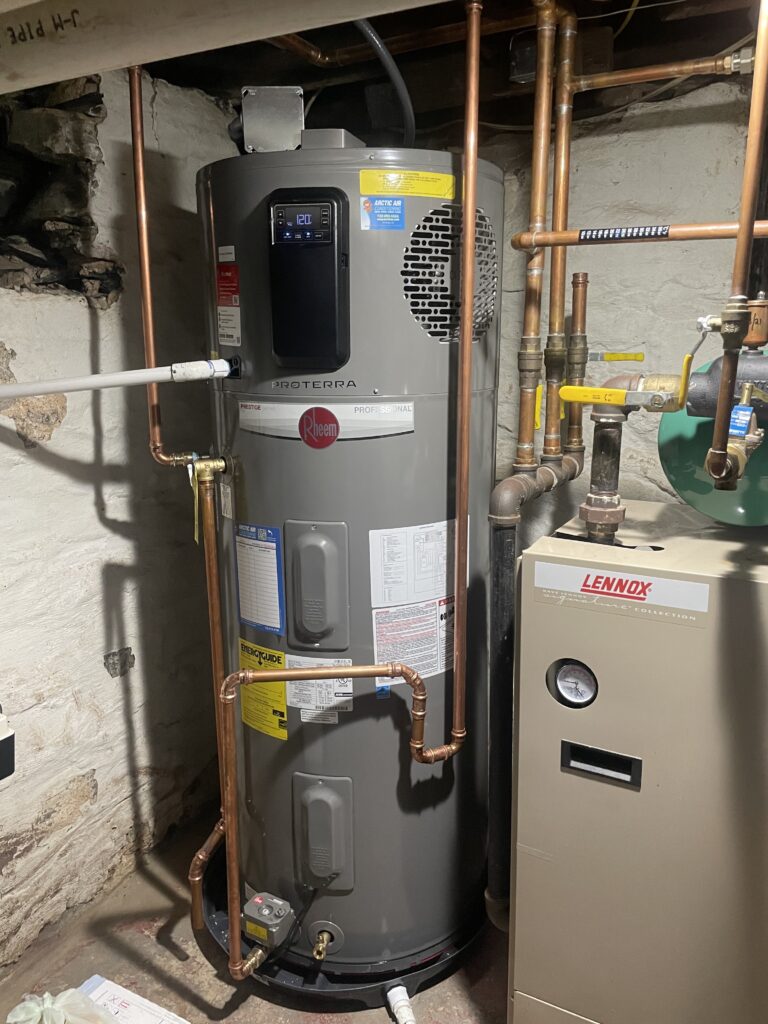
Small Changes with Big Results
Throughout their journey, the couple realized that small adjustments added up to significant energy savings. “Even my computer station, when everything’s off, it still draws power,” Rob points out. He now sets it to turn off automatically at 6 p.m. and turns it on only when needed. Similarly, Alexi says, “People should just not have things plugged in that they don’t use.”
Their conscious decisions—whether as simple as unplugging devices or as complex as installing new water heating systems—have paid off in both financial savings and reduced environmental impact.
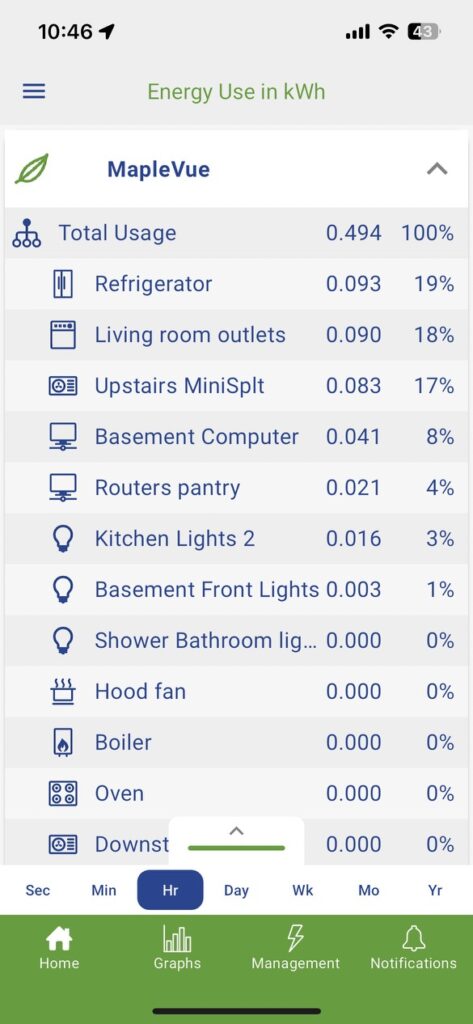
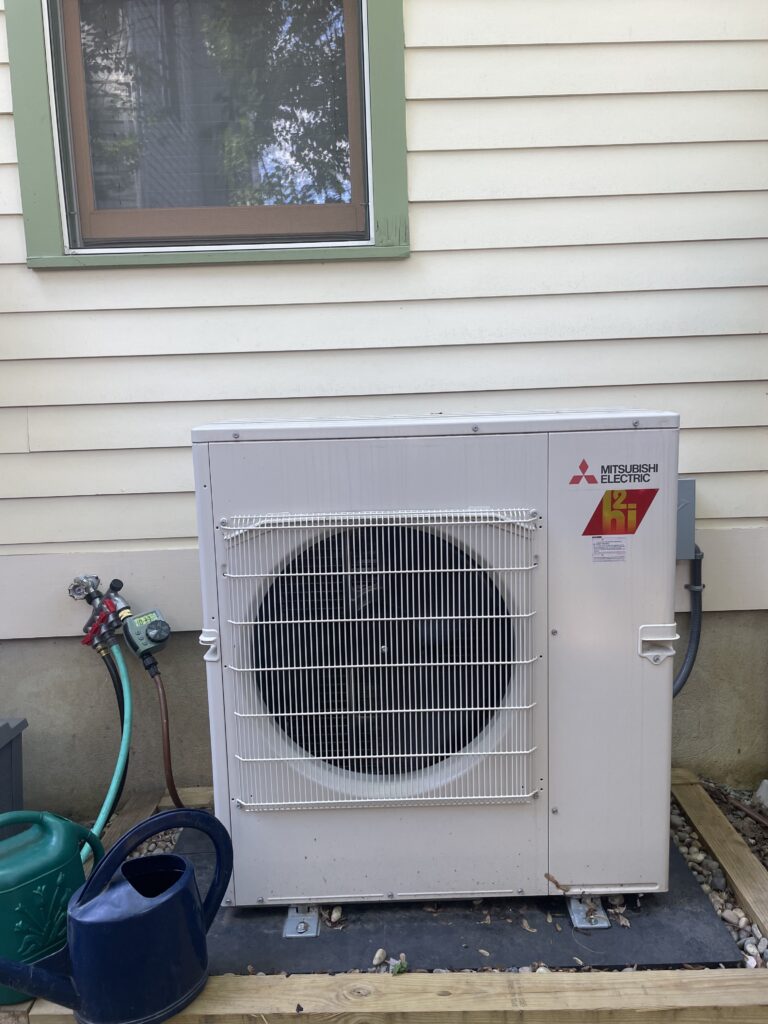
The Future of Conservation
As their energy journey continues, Alexi and Rob are eyeing even more improvements. They’re excited about future technologies that could allow for more optimization, such as time-of-use electricity pricing that would incentivize running high-energy tasks, like using the dishwasher, at night.
Their commitment to energy conservation is ongoing. Rob sums it up best: “It’s really just a little bit of everything.” Their meticulous tracking and thoughtful changes have made a significant difference, and they’re now reaping the rewards of their efforts—lower bills, reduced energy usage, and a more sustainable lifestyle.
This story serves as inspiration for others looking to conserve energy in their homes. As Alexi and Rob demonstrate, with a bit of technology, creativity, and determination, anyone can make meaningful reductions in their home energy consumption.
Want to make your home more energy efficient?
Princeton residents can make their homes more energy efficient with rebates & incentives through PSE&G
Schedule a Home Energy Assessment today!
- Save money
- Make your home more comfortable
- Improve the health and safety of your home
- Contribute to community climate action
For more information visit EnergyOutreachNJ.com/Princeton




